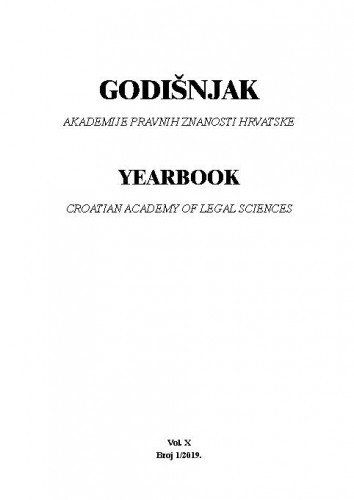Procesi pristupanja Republike Hrvatske u punopravno članstvo EU-a iznimno su kompleksni i vrlo specifični u odnosu na većinu država srednjoeuropskog i jugoistočnoeuropskog prostora. U usporedbi sa svim državama članicama koje su EU-u pristupale u veliku proširenju 2004. te 2007. RH susretala se s mnogim bitno drukčijim izazovima, pa nije rijetko da su se u brojnim napisima pristupanja RH EU-u upotrebljavali najrazličitiji atributi kao 'dugo putovanje' (M. Staničić) ili 'kamenito putovanje – Steniger Weg' (G. Sander, B. Vukas,ml.) i drugi. Pristupanje RH euroatlantskim integracijama i njezin povratak u zapadnoeuropski civilizacijski krug bio je cilj gotovo svih novoformiranih političkih stranaka i intelektualnih krugova 1990., kao i novog vodstva Republike Hrvatske izabrana na prvoj sjednici višestranačkog Sabora 30. svibnja 1990. Jugoslavenska kriza te sve otvorenija velikosrpska agresija i rat protiv Republike Hrvatske bitno će determinirati odnose RH i tadašnjeg EEZ-a. Tako će sadržaj njihovih početnih odnosa biti poglavito uvjetovan pokušajima EEZ-a i drugih europskih organizacija za ublažavanje krize, nastojanjima posredovanja u prvim oružanim sukobima i doprinosima uspostavi mira u vremenu otvorene agresije koja će prijetiti opstanku same države. Autori ovog rada preko pravnih izvora institucija EEZ-a, odredaba tadašnjega europskog prava te međunarodnog prava pokušat će pokazati početke odnosa RH i EEZ-a, napose nakon proglašenja državne neovisnosti 8. listopada 1991. Cilj je navedena istraživanja predstaviti ulogu EEZ-a u tim vrlo specifičnim bilateralnim odnosima i važnost svih tih zbivanja za kreaciju daljnjih odnosa, osobito nakon međunarodnog priznanja RH.; The Republic of Croatia’s accession to full membership of the EU has been an extremely complex and specific process compared to most Central European and South-Eastern European countries. Compared to all the member states that joined the EU in 2004 and 2007, the Republic of Croatia has encountered numerous different challenges, hence the Croatia’s accession to the EU has often been described as a “long journey” (M. Staničić) or “hard journey – SteinigerWeg” (G.Sander, B. Vukas, Jr.), and the like. The accession of the Republic of Croatia to the Euro-Atlantic integrations and its return to the West European civilization was the goal of almost all newly formed political parties and intellectual circles in the 1990’s, including the new government of the Republic of Croatia appointed at the first session of the multiparty Parliament on May 30, 1990. The Yugoslav crisis, and the increasingly open Greater-Serbian aggression and the war against the Republic of Croatia determined to a large extent the relations between the Republic of Croatia and the EEC. Thus, their initial relations were primarily driven by the attempts of the EEC and other European organizations to mitigate the crisis, mediate in the first armed conflicts, and contribute to establishing peace in times of open aggression which threatened the survival of the state. The authors of this paper will attempt to show the origins of the relations between the Republic of Croatia and EEC based on legal sources of the EEC institutions, the provisions of European law and international law, especially after the proclamation of Croatian independence on October 8, 1991.The goal of this research is to present the role of the EEC in these very specific bilateral relations, and the importance of all these events for the creation of further relations, especially after the international recognition of the Republic of Croatia.
Sažetak

 Godišnjak Akademije pravnih znanosti Hrvatske : Yearbook Croatian Academy of Legal Sciences : 10,1(2019) / glavna urednica, editor-in-chief Irena Majstorović.
Godišnjak Akademije pravnih znanosti Hrvatske : Yearbook Croatian Academy of Legal Sciences : 10,1(2019) / glavna urednica, editor-in-chief Irena Majstorović.